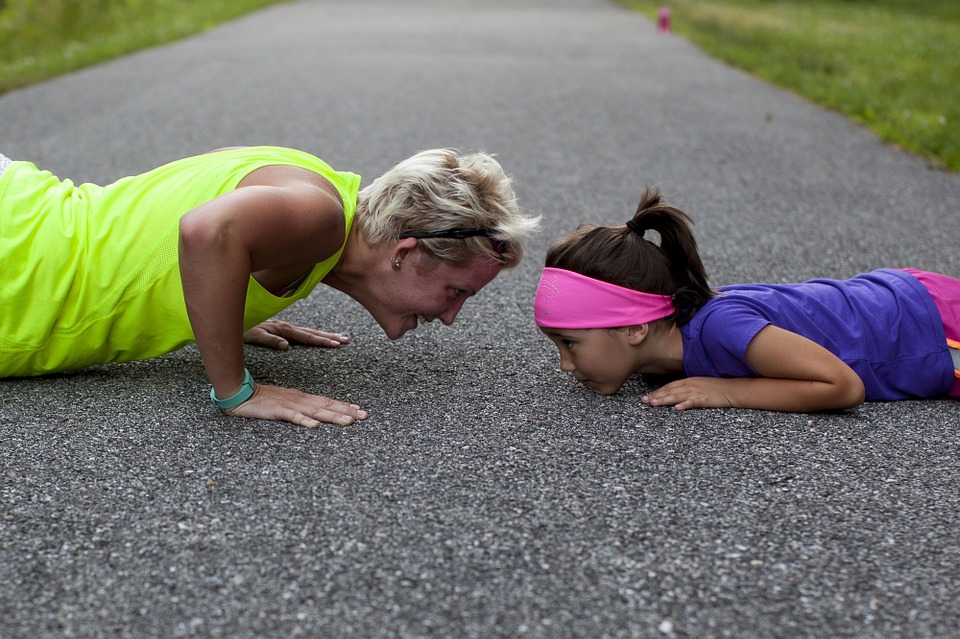Just look around the globe at those cheering fans that fill stadiums everywhere, the kind of fans that shed floods of tears when their team wins, let alone when they lose. These peoples lives revolve around their clubs and their individual happiness rests on success or failure on the pitch. Sports certainly do transcend the stadiums and the white lines of the pitch! What does that mean, though, for kids that are just starting out playing the sport? Sport provides the perfect setting to empower kids with lessons and experiences that they will hold with themselves for the rest of their lives. Sport in general has the power to change lives – here’s just a few of the reasons why…
Success through togetherness
Now, success will be relative to which stage your team or players are at on their sports journey, but one thing that a team game will inevitably teach is working together. Together is a part of a team where your children will be cooperating and collaborating with every pass they make, every tackle they go for and every goal they celebrate. The success of their team depends on every member of the team working together and pulling in the same direction. Sure, there will sometimes be mistakes and sometimes be problems but it will show the children – and even the adults – that together difficulties can be overcome when everybody contributes 100% to a collective goal. We are looking to create team players that even outside will play a positive role in society.
Celebrate success
When that teamwork proves to be successful it is important that it is celebrated all round. Showing children that their teamwork and togetherness is a positive id vital. This can be done with something as little as a pat on the back or vocal praise to a full party, this will show children in the simplest way that teamwork is essential. Success must always be celebrated and relevant to the individuals. Particular achievements will differ from child to child but celebrating a variety of differing things will bring happiness and help make the children feel wanted, it will also encourage them to keep going and continue succeeding. Celebration of success will also find its way into celebration of success of it, whether it be at school or at home, children need to be reminded that the positive things they do are good,
 Being a good winner and loser
Being a good winner and loser
Children will need to know how to deal with their success as well as any failure. As players and aspiring athletes children will need to learn to treat success as a motivation to keep succeeding and not to let any failure stunt their progression or get them down. Inter-personal skills will also be developed here, almost every young team across the country in some way or another acknowledges their opponent after each match – be it a hand shake or a round of applause, the children learn to respect their opponent and not brag, boast or upset those that have tried hard despite succumbing to defeat. In the same way, they also learn to respect their own efforts when they try their best but happen to lose a particular match. It is indeed the taking part and trying your best that counts. The winning and the losing will come and go, but knowing how to deal with them will be permanent.
Never give up
So occasionally your child loses a match, or their team is trailing late into a match – how often does that poor form turn into a miraculous winning streak or a last second goal save the day? Quite often actually, so we must teach our children never to give up. Sport pushes its players to the last second of every match and focuses them to never lose their team work, their spirit or their effort. Some of the greatest sporting stories ever are set deep into the dying moments of matches and every sportsman will experience this at one stage or another. In life we will need our children to be resilient and never give up .
Practice makes perfect or at least better.
No player is ever complete. Even the world’s greatest players train every single day to keep improving and to keep succeeding. Children will see how sustained effort will give them the kind of noticeable results that they crave. Players will notice this in their technique and how training will improve how they play individually, they will also notice it in their team, how training together helps further their collective effort. In time they will become aware of the massive understanding of the game they take on as they grow up. Practice may not make perfect but it will always make better and the kind of resilience we will need our children to show in never giving up we will need them to show in their efforts to keep getting better and keep getting the rewards from it. Each of these lessons will be traits that may well start but will definitely not end there.







